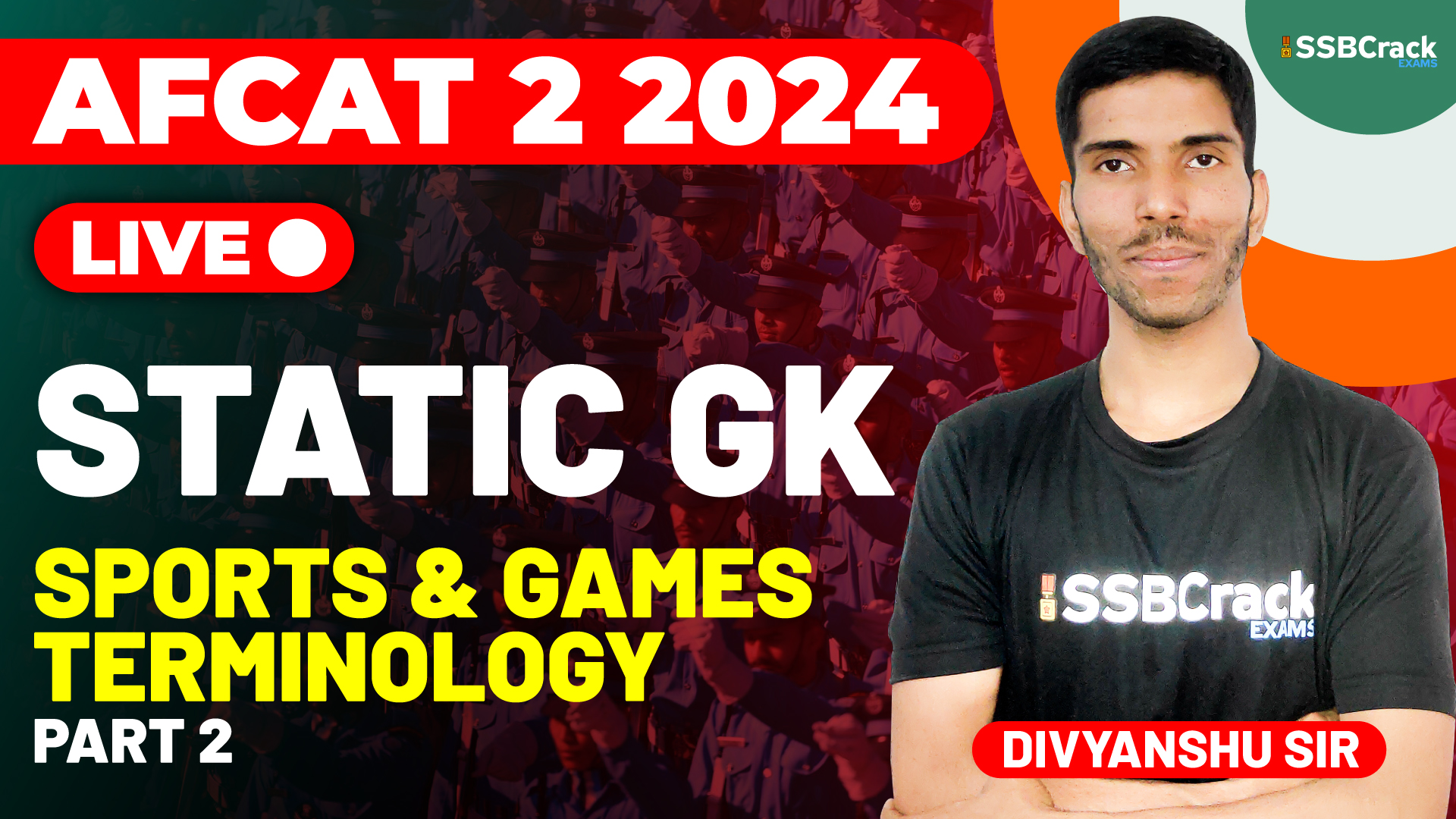The Air Force Common Admission Test (AFCAT) not only assesses candidates on their general knowledge and aptitude but also their awareness of sports and games terminology. This knowledge is crucial as it reflects a candidate’s overall awareness and understanding of various disciplines. In this article, we delve into the terminology associated with different sports and games, providing a comprehensive guide to some of the most common and essential terms.
AFCAT 2 2024 Sports & Games Terminology – Part 2
Cricket
Key Terms:
- Bowler: The player who delivers the ball to the batsman.
- Batsman: The player who tries to score runs by hitting the ball.
- Wicket: Consists of three stumps and two bails; also refers to the dismissal of a batsman.
- Century: When a batsman scores 100 runs in a single innings.
- Duck: When a batsman is dismissed without scoring any runs.
- Over: A set of six consecutive balls bowled by a single bowler.
- LBW (Leg Before Wicket): A way of dismissing a batsman when the ball strikes any part of the body before the bat and would have hit the stumps.
- Maiden Over: An over in which no runs are scored off the bowler.
Volleyball
Key Terms:
- Serve: The act of putting the ball into play by striking it over the net from behind the end line.
- Spike: A powerful shot directed into the opponent’s court.
- Block: A defensive play where one or more players jump near the net to prevent the ball from crossing.
- Dig: A defensive move to prevent the ball from hitting the floor after an opponent’s attack.
- Set: The act of positioning the ball for a spike by a teammate.
- Ace: A serve that lands directly on the opponent’s court without being touched.
Chess
Key Terms:
- Check: A position in which a king is under direct threat of capture.
- Checkmate: A position in which the opponent’s king is in check and there is no legal move to escape.
- Stalemate: A situation where a player has no legal moves and their king is not in check, resulting in a draw.
- Pawn Promotion: When a pawn reaches the opponent’s back rank and is promoted to any other piece, usually a queen.
- Castling: A special move involving the king and a rook, used to protect the king and activate the rook.
- En Passant: A special pawn capture that can occur immediately after a pawn makes a two-step move from its starting position.
Tennis
Key Terms:
- Ace: A serve that the opponent cannot touch, resulting in an immediate point.
- Deuce: A situation where both players have scored 40 points; a player must win by two points to win the game.
- Break Point: A point which, if won by the receiver, breaks the server’s serve.
- Love: A score of zero in tennis.
- Volley: A shot where the ball is struck before it bounces on the ground.
- Grand Slam: Winning all four major championships (Australian Open, French Open, Wimbledon, US Open) in a single calendar year.
Judo
Key Terms:
- Ippon: A score that immediately wins the match, awarded for a perfect throw or a pin lasting 20 seconds.
- Waza-ari: A near-perfect throw or pin, two of which equal an ippon.
- Yuko: A smaller score for a throw or hold-down that is not quite a waza-ari.
- Tatami: The mat area where judo matches are held.
- Gi: The traditional uniform worn in judo.
- Kumi-kata: The gripping techniques used to control the opponent.
Table Tennis
Key Terms:
- Rally: A sequence of back-and-forth shots between opponents.
- Serve: The act of putting the ball into play by striking it with the paddle.
- Topspin: A type of spin where the top of the ball rotates forward, causing it to dip.
- Backspin: A type of spin where the bottom of the ball rotates backward, causing it to rise.
- Smash: A powerful, downward shot intended to win the point.
- Let: A serve that touches the net and lands in the correct service box, requiring a re-serve.
Conclusion
Familiarizing yourself with the terminology of various sports is essential for AFCAT 2 2024. This knowledge not only aids in the exam but also enhances your general understanding of sports and games. Keep revisiting and expanding your knowledge to stay prepared. In the next part, we will explore more sports and their associated terms.








